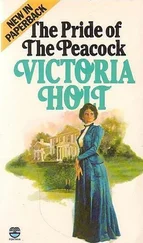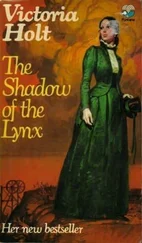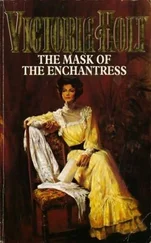I was not quite six years old but I seemed much older, perhaps because my father had insisted that Mary and I should be given a better education than most girls of our station, and I profited from it, even if Mary did not. Daughters of minor aristocracy were usually sent away from home at an early age to some noble household where they would learn to read and write, to sing, to dance and play the lute, to ride side-saddle, to curtsy, to wash their hands before and after a meal, to handle a knife with grace and to dip it into the salt bowl, take a delicate portion and never pick it up with the fingers. That was not good enough for my father. So we were kept at home until the right place could be found for us, which was not easy, for his aims were high and opportunities had to be waited for.
I knew why, of course. I had heard George talking to Thomas Wyatt. We did not have to look far back into the family history to see what great progress we had made. Our great-grandfather, the founder of our fortunes, had been a mere merchant trading in silk and wool cloth. It was true he was a very special merchant, for he had acquired a title and become Lord Mayor of London. His greatest cleverness, though, was in his marriage, for his wife was the daughter of Lord Hoo—and her father's heiress at that. They had a son, William, my grandfather, who had married the daughter of the Earl of Ormond; hence more blue blood was injected into the Boleyn circulation. My father had done best of all, for he had married Elizabeth Howard, daughter of the Earl of Surrey, who in due course became the Duke of Norfolk; and the Dukes of Norfolk considered themselves—most dangerously—more royal than the Tudors.
That was the pattern, said George, and our father planned for us all to continue with it. Therefore his children must receive a special education. They must be prepared to stand equal with the highest in the land. They should therefore not only learn the social graces but have the education which was generally reserved for royal children.
Our governess, Simonette, was aware of this. She was a worldly woman with the fatalism and realism of her race. I was her favorite, which was strange because Mary was more lovable as well as being out-standingly pretty. She was hopeless with her lessons, because she would not—or could not—give her mind to them. So I supposed that was why Simonette favored me.
I must dance as the French danced, walk as they walked in France, and I must speak French as it was spoken in that country. I was fond of her because she admired me and I had always yearned to be admired. I was very conscious of being less pretty than Mary and I confessed this to Simonette.
“No, no, no,” she cried. “You have the grace. You have the charm. You will be the one, little Anne. Mary…oh yes…very pretty…loved for a while because she is giving …too giving… and that can pall. Oh, mon amour , I should want to see you older…a little older, yes. Those eyes… they are magnifique …yes, magnifique . And I tell you this: you know how to use them. It is something you are born with… for I have not taught you… They will allure, those eyes.”
I studied them critically. They were large, making the rest of my face small in comparison. They and my thick dark hair were compensation for the mole on the front of my neck and the beginning of a nail on the side of my little finger which made me think that God had intended to give me a sixth finger and changed his mind, leaving me with only the nail.
I hated it. I could not understand it. I found myself staring, fascinated, at other people's hands.
My brother George said: “Never mind. It makes you different. Who wants to be the same as everyone else?”
“I do,” I said vehemently.
Simonette also tried to comfort me. “Sometimes it is more chic to have a little imperfection…more human…more exciting…more fascinating. You will see.”
Then came that summer's day when we were all in the gardens. I remember so well that feeling of impending doom. I knew that something fearful was going to happen. The household was subdued. Even George and Thomas Wyatt were quiet. Mary was trying to fight off the evil as she always would by pretending that it did not exist.
But we knew that all was not well, for they had sent to my father, bringing him home from the Court, and that would be something no one would dare do unless it was very important.
My mother was dying. This was not just another of those yearly illnesses which beset her. This was not what they called “another disappointment.” This went beyond that. The doctors were there with the midwife.
I thought of her. She was tender and loving to us children, but we had seen little of her. When she was well she accompanied our father to Court and it was only when he was on embassies abroad that she returned to her family. When she grew heavy with child she would be with us. Then would come the confinement and the brief rest before she joined our father. It was a pattern which seemed to go on forever.
Neither George nor Thomas Wyatt could talk as usual on that day. We had been silent, glancing every now and then at the house, waiting.
It was Simonette who came to tell us. I knew as soon as I saw her walking across the grass as though reluctant to reach us.
To lose one's mother when one is not quite six years old is not only a tragic but an illuminating experience. It teaches one that life is not as pleasantly predictable as one had thought it to be. There comes a terrible sense of aloneness and the alarming knowledge that nothing will ever be the same as it was before.
Our father went away on a mission to the Netherlands and was absent for a whole year, and when he came back there was more change in our household. He was clearly rather pleased with himself. George told us that he had had to conclude a treaty with Margaret of Savoy, Archduchess of Austria, by which the Emperor Maximilian, Pope Julius and Ferdinand of Spain should, with England, make war on France. This was the treaty which was soon to founder; but at that time my father believed that its conclusion was a great success for him. There was something else which was equally pleasing to him. My sister Mary was to go to the Court in Brussels over which Margaret reigned as Regent of the Netherlands.
George said: “This is what our father always wanted—to get his children into royal circles.”
So I lost Mary and as George was soon to go to Cambridge—and Thomas Wyatt with him—our little group was much diminished and Mary Wyatt and I did our best to console each other.
I remember well the long summer day at Hever or riding over to Allington, feeding the pigeons with Mary Wyatt. I was fascinated by the pigeons; they had light brown feathers, different from the ordinary gray ones. I thought the reason why they were there was so romantic. I had first heard it from Thomas, who told it so beautifully—as he did everything.
His father, Sir Henry, had been the prisoner of Richard III because he had not supported his accession to the throne, and on account of this had been thrown into the Tower. There he was severely tortured and when he had fainted with the agony, mustard and vinegar had been forced down his throat to revive him. When he refused to give way, he was put into a cell and left to starve.
Sir Henry had thought his end was near but one day he saw a cat on the windowsill. He staggered to the window, delighted to have contact with some living thing; he put his hand through the bars to stroke the cat's fur. Instead of repulsing him the cat had purred. He felt the better for it. The cat went away but shortly afterward came back with a pigeon it had caught and killed. The pigeon was for Sir Henry. It was food and he was almost dead of starvation. He ate the pigeon.
Читать дальше







